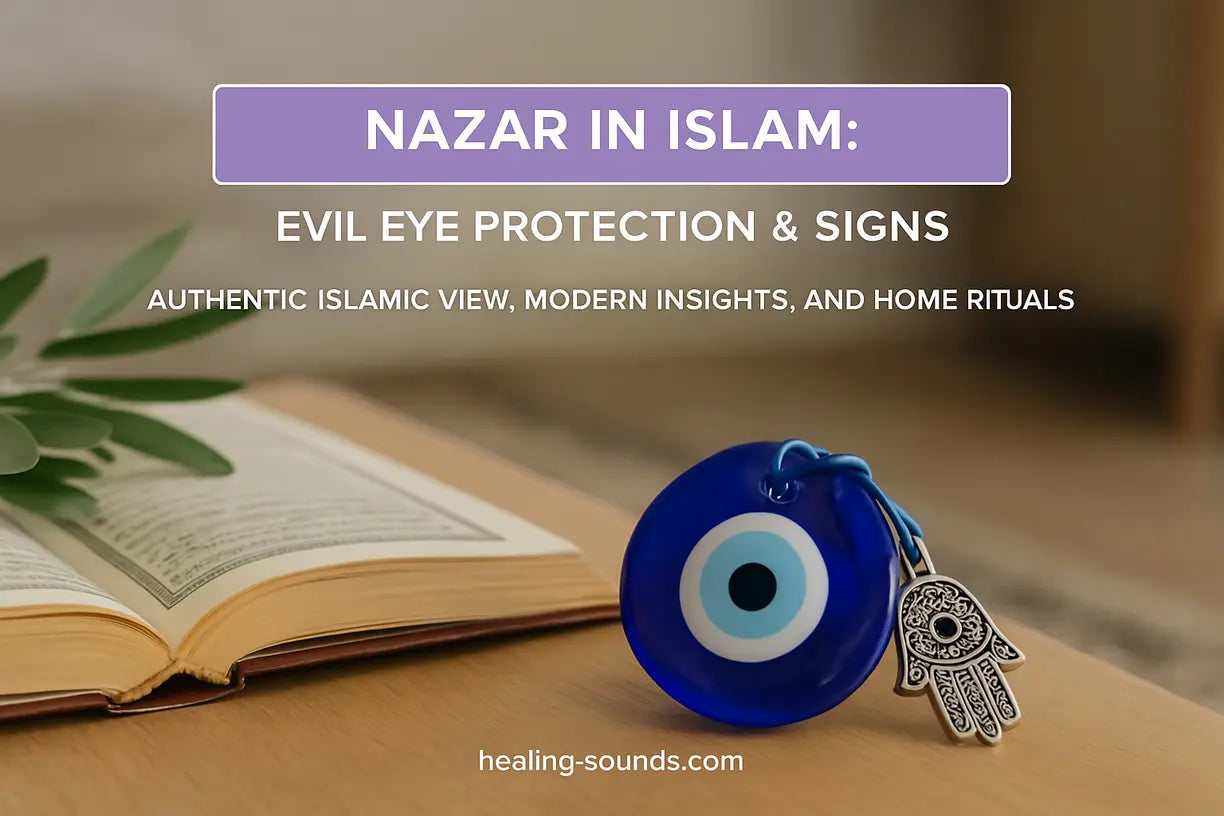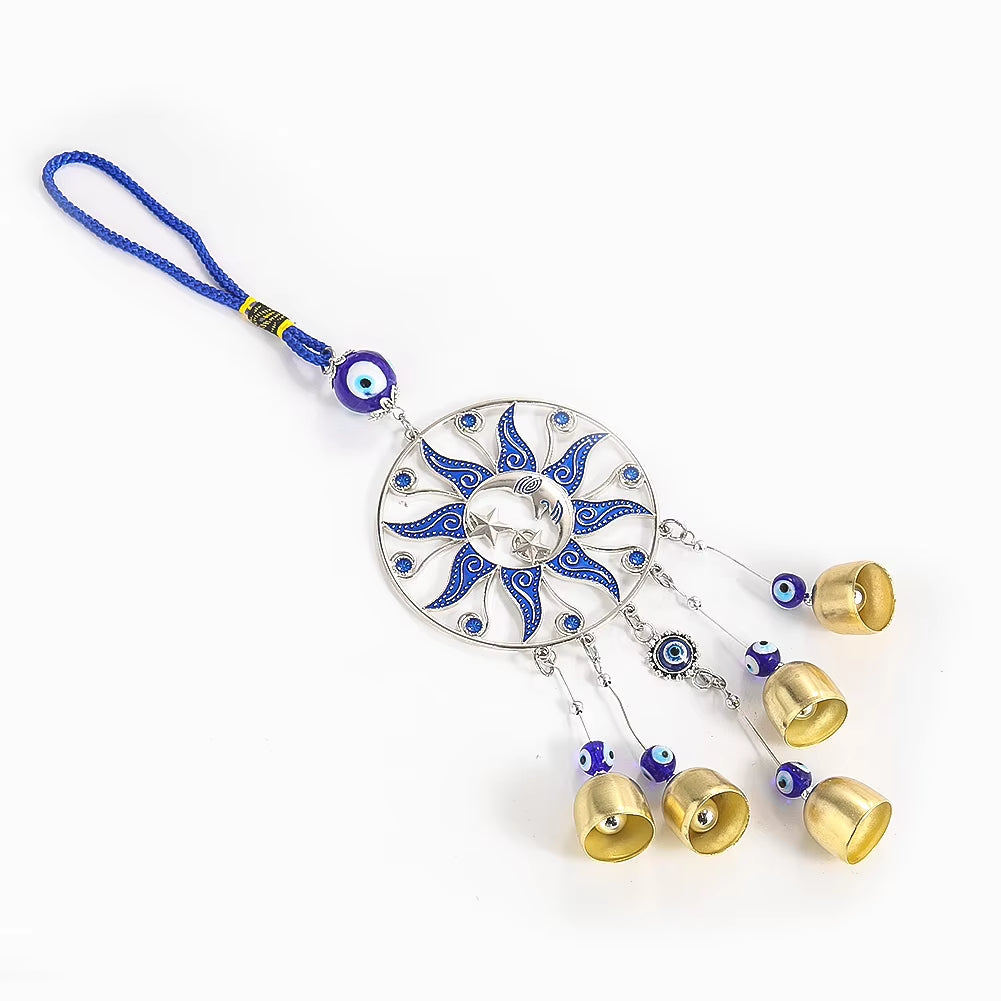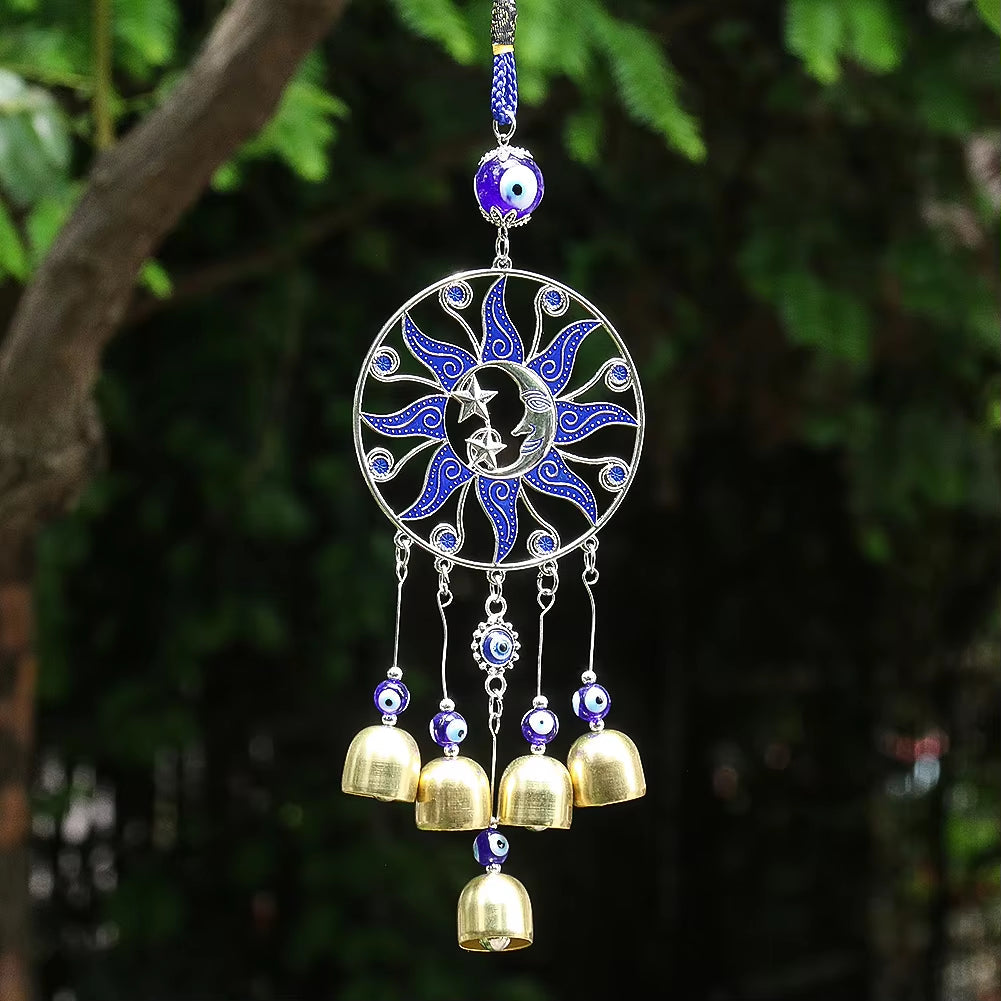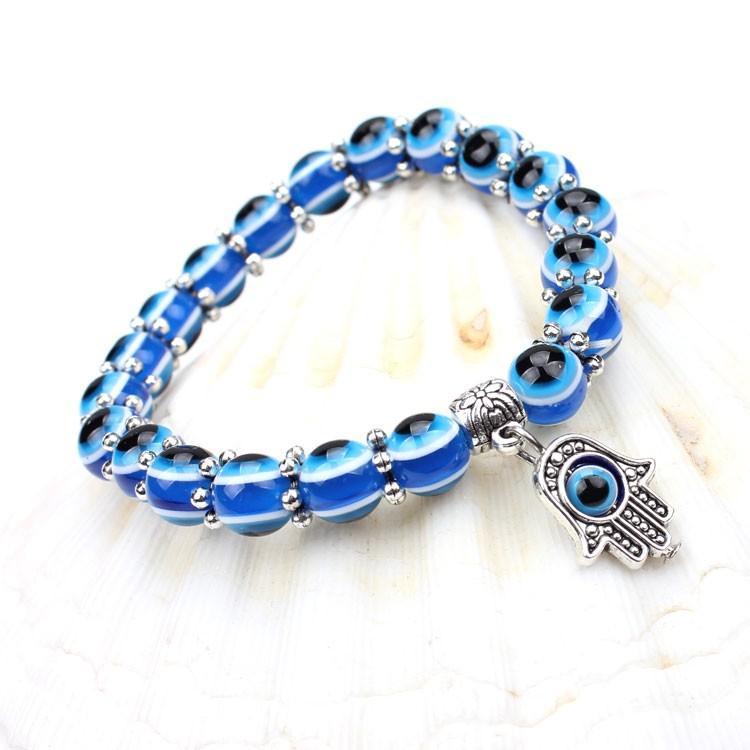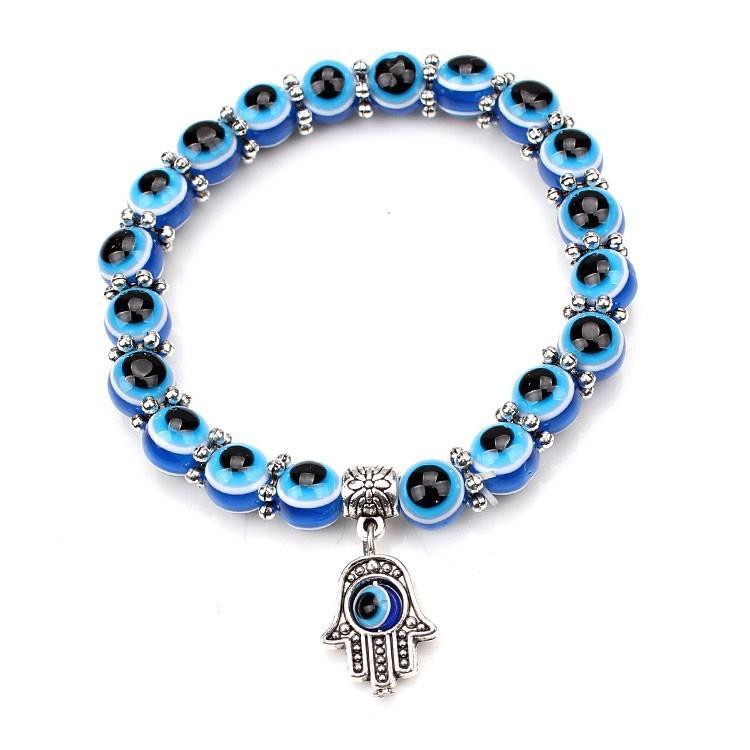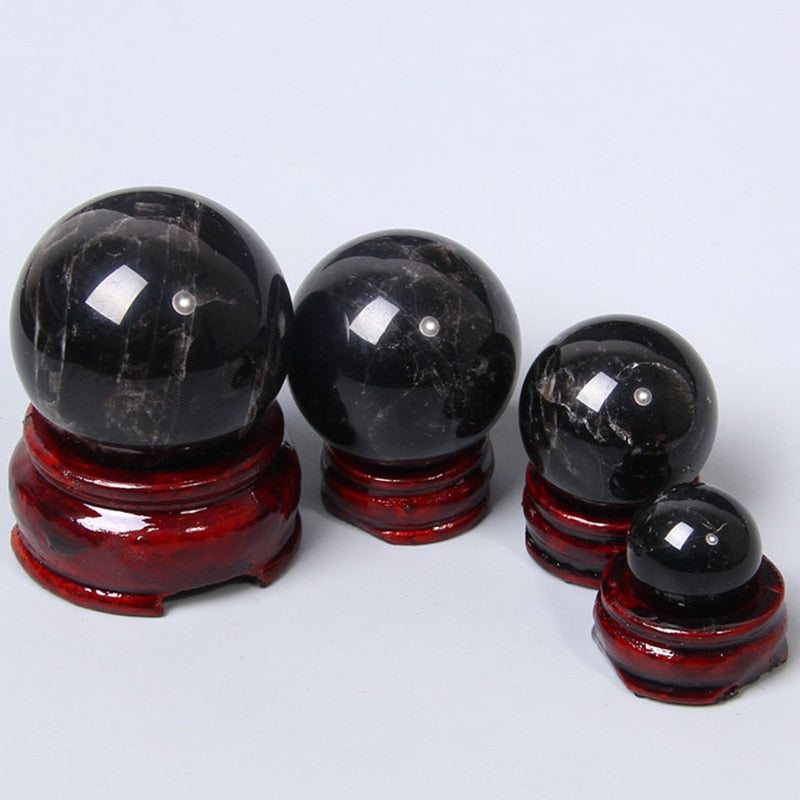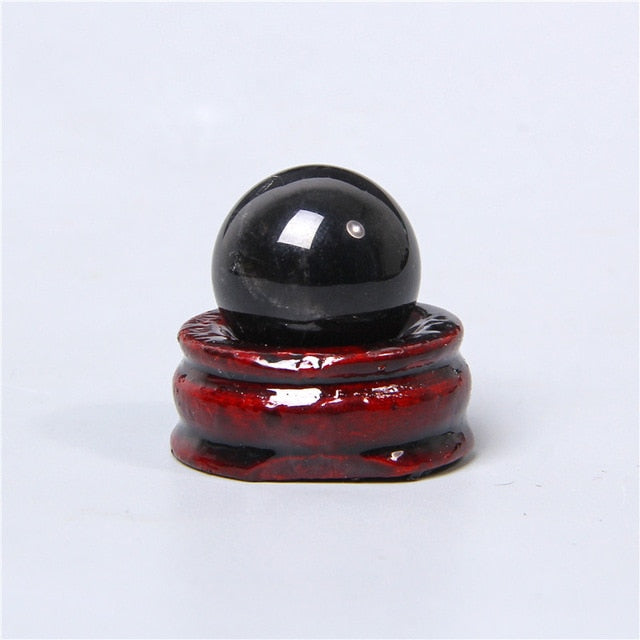Le concept de nazar en islam , souvent appelé « mauvais œil », est une croyance profondément ancrée dans la culture et la compréhension religieuse musulmanes. Pour les personnes spirituellement orientées qui cherchent à vivre avec foi et protection, il est crucial de comprendre le nazar d'un point de vue islamique authentique. Cet article approfondit la signification du nazar, explore son analyse dans les textes islamiques, identifie les signes courants et décrit les mesures de protection recommandées, offrant clarté et conseils pour se protéger et protéger ses proches.
De nombreux musulmans grandissent en entendant parler du nazar, une force invisible censée causer du mal, des maladies ou du malheur par un regard envieux ou admiratif. Mais quel est exactement son fondement dans les enseignements islamiques ? Nous explorerons les traditions coranique et prophétique pour vous offrir un aperçu complet et vous aider à distinguer les pratiques culturelles des véritables principes islamiques de protection contre le mauvais œil.
Comprendre Nazar : le concept islamique du mauvais œil
Nazar, terme arabe, signifie « vue », « surveillance » ou « attention ». Dans le contexte de la croyance islamique, il désigne le préjudice que peut causer un regard envieux ou admiratif. Il ne s'agit pas seulement d'une mauvaise intention ; parfois, même un regard admiratif, s'il n'est pas accompagné d'une bénédiction comme « Masha'Allah » (la volonté d'Allah), peut involontairement provoquer le nazar. L'idée fondamentale est qu'une émotion forte, en particulier l'envie ( hasad ), peut se manifester comme une force spirituelle néfaste.
Qu'est-ce que Nazar ? (Signification : « Al-Ayn », Envie)
Le terme souvent utilisé dans les textes islamiques pour désigner le mauvais œil est « al-'ayn ». On pense que l'œil agit comme un canal pour les pensées envieuses ou l'admiration excessive qui habitent le cœur d'une personne, projetant une énergie négative vers l'objet de ce regard. Cela peut affecter la santé, la richesse, le bonheur et même les objets inanimés. Comprendre la signification du nazar en islam est essentiel pour en reconnaître les conséquences potentielles et trouver les remèdes appropriés. L'envie est considérée comme une émotion dangereuse, et le mauvais œil est souvent perçu comme l'une de ses conséquences directes.

Nazar dans le Coran et la Sunna
Le Coran et la Sunna (enseignements et pratiques du Prophète Mahomet, sur lui la paix et le salut) font clairement référence à la réalité du mauvais œil. Bien que le Coran n'utilise pas le terme exact « nazar » dans le contexte du mauvais œil aussi fréquemment que « al-'ayn », il fait allusion à l'envie et à ses dangers potentiels. Par exemple, la sourate Al-Falaq, l'une des deux sourates de « protection », demande refuge « contre le mal de l'envieux lorsqu'il envie » (Coran 113:5). Cette interprétation est largement répandue parmi les érudits, incluant la protection contre le mauvais œil.
Le Prophète Mohammed (sur lui la paix et le salut) a explicitement reconnu le mauvais œil. Dans un célèbre hadith (récit prophétique), il a déclaré : « Le mauvais œil est réel , et si quelque chose devait contrecarrer le décret divin (Qadar), ce serait lui. » (Sahih Muslim). Il a également prescrit des du'as (invocations) et des actions spécifiques pour s'en protéger, insistant sur la confiance en Allah et la recherche de Son refuge.
Reconnaître les signes : les symptômes de Nazar en Islam
Déterminer si l'on est atteint des signes du Nazar en Islam peut s'avérer difficile, car les symptômes peuvent varier et se superposer à ceux d'autres affections. Cependant, les érudits musulmans et les savoirs traditionnels suggèrent divers indicateurs. Ceux-ci peuvent se manifester physiquement, émotionnellement, spirituellement, voire dans le contexte d'une personne. Parmi les signes fréquemment cités, on peut citer :
- Maladie soudaine et inexpliquée ou problèmes de santé persistants que les médecins ne peuvent pas diagnostiquer.
- Fatigue, léthargie ou faiblesse inexpliquées.
- Bâillements fréquents sans sensation de somnolence ni yeux larmoyants.
- Une sensation de lourdeur, particulièrement au niveau de la tête ou des épaules.
- Aversion soudaine pour les choses que l’on appréciait auparavant (par exemple, la maison, le travail, les êtres chers).
- Troubles émotionnels inexpliqués, anxiété ou irritabilité.
- Perturbation des moyens de subsistance, des affaires ou des relations sans cause apparente.
- Chez les enfants, pleurs excessifs, refus d’allaiter ou maladie soudaine.
Il est important d'aborder ces signes avec une perspective équilibrée, en demandant un avis médical si nécessaire, tout en envisageant des remèdes spirituels si un nazar est suspecté.
Protection et remèdes islamiques pour Nazar
L'islam fournit des conseils complets pour se protéger du nazar et chercher des remèdes en cas de danger. La pierre angulaire de cette protection repose sur la foi, le rappel d'Allah (dhikr) et les pratiques spécifiques enseignées par le prophète Mahomet (sur lui la paix et le salut).
Le pouvoir de la foi : récitations coraniques et du'as
La meilleure défense contre le nazar est une connexion forte avec Allah et la récitation régulière de sourates et de du'as spécifiques du Coran. Parmi celles-ci, les plus importantes sont :
- Sourate Al-Falaq (Chapitre 113) et Sourate An-Nas (Chapitre 114) : Connues sous le nom de « Al-Mu'awwidhatayn » (les deux versets du refuge), elles sont fortement recommandées pour se protéger contre tous les maux, y compris le mauvais œil.
- Ayat al-Kursi (Coran 2:255) : Le verset du Trône est un puissant verset protecteur. Le réciter après chaque prière et avant de dormir constitue un puissant bouclier.
- Invocations spécifiques : Le Prophète (sur lui la paix et le salut) a enseigné diverses invocations pour obtenir la protection. Une invocation courante est : « A'udhu bi kalimatillahil-tammati min sharri ma khalaq » (Je cherche refuge auprès des paroles parfaites d'Allah contre le mal de ce qu'Il a créé). Une autre invocation consiste à chercher refuge contre « le mal de l'envieux lorsqu'il envie ».
La cohérence dans ces récitations et supplications, avec une foi sincère, est primordiale pour la protection islamique .

Conseils prophétiques pour éviter et contrer Nazar
Au-delà de la récitation, le Prophète (que la paix soit sur lui) a donné des conseils pratiques :
- Dire « Masha'Allah La Quwwata Illa Billah » (Ce qu'Allah a voulu ; il n'y a de pouvoir qu'en Allah) ou « Barakallahu Laka/Laha/Feek » (Qu'Allah vous bénisse) lorsque vous admirez quelque chose chez les autres ou chez soi-même peut éviter de jeter par inadvertance le mauvais œil.
- Dissimuler les bénédictions : Bien qu’il faille être reconnaissant pour les bienfaits d’Allah, éviter toute ostentation inutile ou tout étalage de bénédictions peut réduire le risque d’attirer l’envie.
- Exécution de la Ruqyah : Il s'agit de réciter des versets coraniques et des invocations spécifiques sur soi-même ou sur une autre personne affectée par le nazar. Cela doit être fait conformément à la Sunna authentique.
Rechercher des connaissances auprès de sources islamiques fiables comme IslamQA sur le thème d’Al-Ayn peut fournir des informations plus approfondies sur ces pratiques.
Principales protections islamiques contre Nazar :
- Récitation régulière de la sourate Al-Falaq, de la sourate An-Nas et de l'Ayat al-Kursi.
- Faire des Du'as spécifiques enseignés par le Prophète (PSL).
- Dire « Masha'Allah » ou « Barakallah » en voyant quelque chose d'admirable.
- Pratiquer la modestie et éviter l’étalage excessif de bénédictions.
- Exécuter la Ruqyah basée sur le Coran et la Sunna.
Le rôle des amulettes et des objets : un point de vue islamique
L'utilisation d'amulettes ou de charmes pour se protéger du nazar, comme la perle bleue contre le mauvais œil (souvent appelée « nazar boncuğu ») ou la main de Fatima, est une pratique culturelle courante dans de nombreuses régions à majorité musulmane et au-delà. Cependant, d'un point de vue théologique islamique strict, le recours à de tels objets pour se protéger est sujet à débat. Les études islamiques dominantes soulignent que la véritable protection ne vient que d'Allah . Attribuer des pouvoirs protecteurs aux objets eux-mêmes peut être perçu comme confinant au shirk (associer des partenaires à Allah), qui est un péché majeur en islam.

Bien que certains utilisent ces objets comme symboles culturels ou rappels pour implorer la protection d'Allah, il est crucial de placer sa foi exclusivement en Dieu et dans les moyens prescrits par le Coran et la Sunna. La compréhension générale des croyances contre le mauvais œil dans différentes cultures implique souvent de tels talismans, mais l'approche islamique privilégie les actions spirituelles.
Carillons éoliens amulettes œil bleu turc pour décoration de jardin
$10.63 $30.90
Invoquez la protection spirituelle de Nazar avec ce carillon éolien emblématique à œil bleu turc, une belle décoration pour la paix et la bénédiction.
Explorer le produitPour ceux qui apprécient ces symboles culturels tout en gardant leur foi correctement orientée, des objets comme l'amulette turque Blue Eye peuvent servir de pièce décorative qui rappelle le concept de nazar et l'importance de rechercher une protection spirituelle par des moyens islamiques.
Complétez vos défenses spirituelles
$29.99
$39.99
Portez une protection d'inspiration islamique contre les énergies négatives avec cet élégant bracelet à breloques fait main contre le mauvais œil et la hamsa. En savoir plus ➔
$39.99
$49.99
Éloignez le mal et améliorez la clarté spirituelle dans votre maison avec cette puissante sphère de protection en obsidienne, parfaite pour les préoccupations nazaréennes. En savoir plus ➔
Principaux points à retenir sur Nazar dans l’Islam :
- Nazar (al-'ayn) est le préjudice causé par un regard envieux ou trop admiratif, un concept affirmé dans les textes islamiques.
- La protection islamique authentique repose sur la foi, la récitation du Coran (en particulier Al-Mu'awwidhatayn et Ayat al-Kursi) et des Du'as spécifiques.
- Les conseils prophétiques incluent le fait de dire « Masha'Allah », de pratiquer la modestie et d'accomplir la Ruqyah.
- Il est déconseillé de se fier aux amulettes pour se protéger ; le véritable refuge est recherché auprès d’Allah seul.
Conclusion : Adopter une protection fondée sur la foi
Comprendre le nazar en Islam , c'est reconnaître une réalité spirituelle et se doter des moyens de protection divinement prescrits. Malgré les interprétations et pratiques culturelles, la protection contre le mauvais œil repose essentiellement sur le renforcement de la foi, l'adhésion aux enseignements du Coran et de la Sunna, et une confiance absolue en la puissance d'Allah. En intégrant régulièrement des du'as, des récitations coraniques et des actions conscientes au quotidien, les musulmans peuvent trouver paix et sécurité, sachant qu'ils prennent les mesures les plus efficaces pour se protéger du nazar et vivre une vie bénie par la protection divine. Healing Sounds encourage l'exploration de ces outils spirituels pour améliorer votre bien-être et votre force spirituelle.
Questions fréquemment posées sur Nazar en Islam
Le Coran aborde principalement le nazar (mauvais œil) à travers le concept d'envie (hasad). La sourate Al-Falaq (113:5) demande explicitement refuge « contre le mal de l'envieux », ce que les érudits interprètent largement comme incluant le mauvais œil. Le Coran insiste sur la recherche de protection auprès d'Allah contre de tels maux. Bien qu'il ne détaille pas le nazar aussi longuement que le hadith, il pose les bases pour comprendre sa réalité et l'importance de la protection divine.
Les musulmans s'appuient principalement sur des pratiques spirituelles pour se protéger du nazar. Cela comprend : la récitation de versets et de chapitres spécifiques du Coran (comme la sourate Al-Falaq, An-Nas et Ayat al-Kursi), les du'as (invocations) enseignées par le Prophète Mahomet (que la paix et la bénédiction d'Allah soient sur lui), la récitation de « Masha'Allah » (la volonté d'Allah) lorsqu'on admire quelque chose, la pudeur et la ruqyah (guérison islamique par la récitation du Coran). L'accent est mis sur la recherche de refuge auprès d'Allah.
Le symbole 🧿, souvent une amulette en forme d'œil bleu (nazar boncuğu), est un talisman culturel censé, selon certains, éloigner le mauvais œil. Bien que répandu dans de nombreuses cultures, y compris certaines sociétés musulmanes, il ne s'agit pas d'un symbole islamique en soi. Les enseignements islamiques privilégient la recherche de protection par la foi en Allah et la récitation du Coran plutôt que par le recours aux amulettes. Certains érudits considèrent que le recours à de tels symboles pour se protéger est problématique d'un point de vue théologique (il peut s'agir d'un shirk si l'on leur attribue un pouvoir indépendant d'Allah).
En Islam, les signes du nazar peuvent être variés et inclure : une maladie soudaine et inexpliquée, une fatigue persistante, des bâillements fréquents ou des yeux larmoyants, une sensation de lourdeur, une aversion soudaine pour les choses que l'on apprécie habituellement, des troubles émotionnels (anxiété, irritabilité) ou des difficultés professionnelles ou relationnelles inexpliquées. Ce sont des indicateurs généraux, et il est important d'envisager d'autres causes potentielles.
En islam, supprimer ou contrer le nazar implique des pratiques spirituelles spécifiques. La principale méthode est la ruqyah, qui comprend la récitation de versets coraniques (notamment Al-Fatiha, Ayat al-Kursi, Al-Ikhlas, Al-Falaq, An-Nas) et des du'as spécifiques sur la personne affectée. Il est également recommandé d'implorer l'aide d'Allah par des prières sincères, d'intensifier le dhikr (invocation d'Allah) et de faire des aumônes. Si la personne qui jette le mauvais œil est connue, lui demander de faire ses ablutions (wudu) puis de verser cette eau sur la personne affectée est une méthode mentionnée dans les hadiths, bien que souvent peu pratique.

